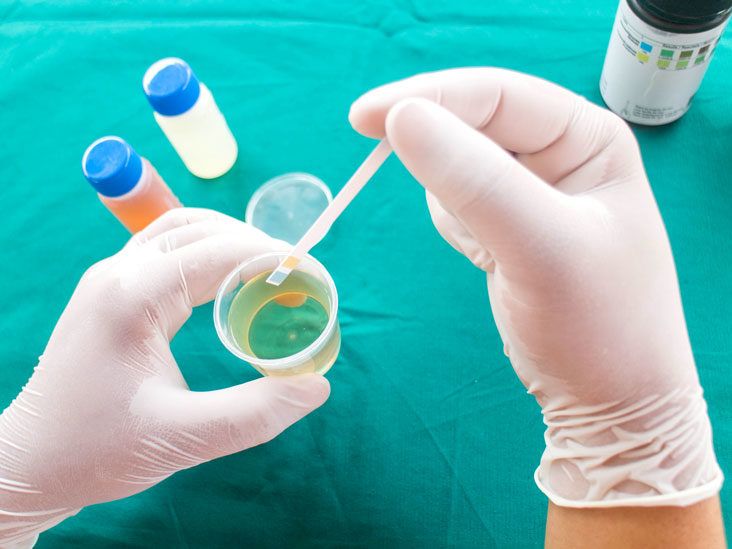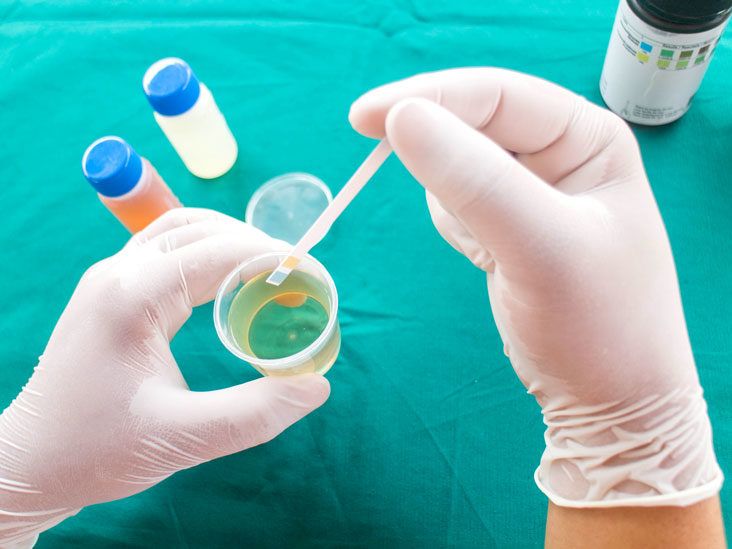The importance of accurate medical testing cannot be overstated. A single misread or inaccurate result can have devastating consequences for patients and their families. In the world of liver function tests, one such test is the urine bilirubin test. But just how reliable are these results? Are they an accurate reflection of our body’s inner workings, or do they leave room for error?
A Closer Look at Urine Bilirubin Tests
Urine bilirubin tests measure the level of bilirubin in a person’s urine. Bilirubin is a yellow pigment that forms when the liver breaks down old or damaged red blood cells. Elevated levels of bilirubin in the urine can indicate liver dysfunction, which may be caused by various factors such as cirrhosis, hepatitis, or obstruction of the bile ducts.
The Importance of Accurate Results
Accurate results from urine bilirubin tests are crucial for diagnosing and managing liver diseases. If a test result is incorrectly elevated or depressed, it may lead to unnecessary investigations, treatments, or even delays in receiving appropriate care. For instance, if a patient has an inaccurate result indicating liver dysfunction when they don’t actually have it, they may be subjected to invasive procedures or medications that are not necessary.
In this blog post, we’ll delve into the accuracy of urine bilirubin tests and explore the factors that can influence their results. We’ll also examine the implications of inaccuracies and discuss what patients can do to ensure they’re getting the most accurate test results possible. Let’s start by looking at some of the key factors that affect the accuracy of urine bilirubin tests.

The importance of accurate medical testing cannot be overstated. A single misread or inaccurate result can have devastating consequences for patients and their families. In the world of liver function tests, one such test is the urine bilirubin test. But just how reliable are these results? Are they an accurate reflection of our body’s inner workings, or do they leave room for error?
A Closer Look at Urine Bilirubin Tests
Urine bilirubin tests measure the level of bilirubin in a person’s urine. Bilirubin is a yellow pigment that forms when the liver breaks down old or damaged red blood cells. Elevated levels of bilirubin in the urine can indicate liver dysfunction, which may be caused by various factors such as cirrhosis, hepatitis, or obstruction of the bile ducts.
The Importance of Accurate Results
Accurate results from urine bilirubin tests are crucial for diagnosing and managing liver diseases. If a test result is incorrectly elevated or depressed, it may lead to unnecessary investigations, treatments, or even delays in receiving appropriate care. For instance, if a patient has an inaccurate result indicating liver dysfunction when they don’t actually have it, they may be subjected to invasive procedures or medications that are not necessary.
In this blog post, we’ll delve into the accuracy of urine bilirubin tests and explore the factors that can influence their results. We’ll also examine the implications of inaccuracies and discuss what patients can do to ensure they’re getting the most accurate test results possible. Let’s start by looking at some of the key factors that affect the accuracy of urine bilirubin tests.
Factors That Affect Accuracy
Several factors can impact the accuracy of urine bilirubin tests, including:
Patient preparation: Improper fasting or inadequate hydration before the test can lead to inaccurate results.
Sample collection: Incorrect handling and storage of the urine sample can affect the accuracy of the test result.
Laboratory testing methods: The method used by the laboratory to measure bilirubin levels can also impact accuracy. According to the American Gastroenterological Association (AGA), some laboratories may use different methods to measure bilirubin levels, which can lead to variations in test results.
Patient health status: Certain medical conditions, such as kidney or liver disease, can affect bilirubin levels and potentially influence the accuracy of the test result.
It’s essential for patients to be aware of these factors and take steps to ensure they’re getting accurate results. For instance, following proper fasting and hydration guidelines before the test, asking questions about the laboratory testing methods used, and disclosing any underlying medical conditions can all contribute to a more accurate diagnosis.
In our next installment, we’ll explore the implications of inaccuracies in urine bilirubin tests and discuss what patients can do to minimize the risk of inaccurate results. Stay tuned for part two!
Get Expert Medical Guidance
Are you looking for personalized medical advice on urine bilirubin tests? Our team of medical experts is here to help.
Start chatIn conclusion, while urine bilirubin tests can provide valuable insights into liver function, it’s essential to recognize that accuracy is not guaranteed. Factors such as improper specimen collection, inadequate patient hydration, and laboratory errors can all contribute to inaccurate results.
As patients, it’s crucial to be aware of these potential pitfalls and take steps to ensure the most accurate test results possible. This includes being open with your healthcare provider about any medications or supplements you’re taking, following proper specimen collection procedures, and asking questions if you have concerns about your test results.
Moreover, as medical professionals, it’s our responsibility to prioritize accuracy in all aspects of patient care, from the initial testing process to the interpretation of results. By doing so, we can minimize the risk of misdiagnosis and ensure that patients receive the most effective treatments possible.
In summary, while urine bilirubin tests are a valuable tool for assessing liver function, it’s essential to recognize their limitations and take steps to ensure accuracy. As patients and healthcare providers alike, let us work together to prioritize precision in medical testing, thereby promoting better health outcomes for all.
The Mystery of Red Bumps on the Penis: Are you concerned about unusual red bumps on your penis? Our comprehensive guide will walk you through possible causes, treatment options, and expert advice to help you regain control over your sexual health.
Solving Life’s Mysteries with a Fool: Ever wondered how someone can be so… unhelpful? Learn from our expert’s humorous take on life’s puzzles and discover how embracing the absurd can lead to newfound clarity and understanding.




